


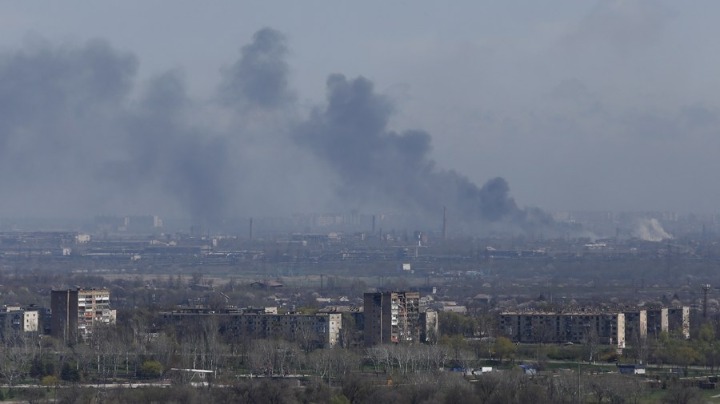
Russia's President Vladimir Putin says his country will continue its yearlong "special military operation" in Ukraine, and he accused the US-led NATO alliance of fanning the flames.
Russia-Ukraine conflict would have cost world economy $1.6 trillion in 2022, according to a study published by the German Economic Institute.

Bloc will struggle to manage crisis, with resources stretched, experts say
Although sympathetic countries in the European Union have opened up to a flood of refugees from the conflict in Ukraine, the bloc will nevertheless find it difficult to manage the largest migrant crisis facing Europe in seven decades, analysts said.
By Saturday, some 2.7 million refugees had fled Ukraine since the conflict between Russia and Ukraine started on Feb 24, and that number is still rising, according to the United Nations Refugee Agency. With Ukraine stopping men aged up to 60 from leaving the country, most of those heading abroad are women and children. As there are no flights because of the fighting, they have rushed to neighboring countries, mostly to the west, by car, bus, train, or on foot.
UN refugee agency chief Filippo Grandi said Europe is now confronting its largest refugee crisis since World War II. The UN initially estimated that about 4 million people could flee Ukraine, but said later that the number could be revised upward as the conflict drags on.
Early in the conflict, the Council of the European Union adopted unanimously a decision that enables Ukrainian refugees to receive temporary legal protection for an initial period of one year. They also gain the right of residence, access to the labor market and housing, medical assistance, and access to education for their children. That period may also be extended automatically by six-monthly periods for a maximum of one year.
Over the past few days, there have already been growing concerns about how to protect vulnerable refugees.
Gou Liwu, a researcher on Russian issues at the East China Normal University, said that Ukrainian refugees will certainly exacerbate the refugee crisis in Europe.
Compared with African and Middle Eastern refugees, those from Ukraine find it easier to integrate and be accepted into the EU culturally.
Sudden occurrence
"However, due to the sudden occurrence of the Russia-Ukraine conflict in terms of time and the severity of its impact, which is beyond the expectations of many countries, it will bring great challenges for the EU to accept and resettle these refugees," he said.
Tian Dewen, deputy director of the Institute of European Studies at the Chinese Academy of Social Sciences, said that since the outbreak of the 2015 refugee crisis, countries in Central and Eastern Europe have expressed strong resistance to the EU's program of taking in refugees. This time, they have been much more accepting with Ukrainians. "During the refugee wave from the Middle East, Europe was far away from Syria and was cautious about bringing in terrorists, and Syrian refugees did not want to live in Europe for a long time either," he said.
"The refugees brought by the Russia-Ukraine conflict are not directly related to terrorism and pose little security threat.
"Moreover, these countries are all neighbors of Ukraine, so they will accept Ukrainian refugees whether from moral or political considerations."
However, countries on the EU's eastern flanks are relatively less well off than in other parts of the bloc, meaning their capacities to accept refugees are limited. More financial and material support is expected from other EU countries, the scholar said.
Tian said that refugees have caused problems for the EU in the past few years. Even now, there are still many refugees from the likes of Iraq, Syria, and Afghanistan who are massing on the EU's borders.
He said the influx of refugees into European countries may trouble members of the lower and middle classes of society. Fears over livelihoods and employment are often cited, the scholar said.
If refugees are out of work and part of their welfare assistance has to be paid from taxes, it will also have an impact on society.
"The rise of populism in European countries in recent years is directly related to immigrants," he said.
Ukraine and Russia took a technical pause in their peace talks, Ukrainian Presidential Advisor Mykhailo Podolyak, also a member of the delegation, said Monday.
"A technical pause has been taken in the negotiations until tomorrow. For additional work in the working subgroups and clarification of individual definitions," Podolyak tweeted.
Earlier in the day, Podolyak said that the talks between Ukraine and Russia went on, although they were "hard".
The fourth round of negotiations between Ukrainian and Russian delegations was held earlier on Monday via video link.
BEIJING - The Red Cross Society of China announced Monday that it has sent a third batch of emergency humanitarian aid supplies to the Ukrainian Red Cross Society.
The new supplies, including milk powder for children and quilts, left Beijing on Monday and are expected to arrive in Warsaw, Poland, on Monday. They will then be transported to Ukraine.
The first batch of supplies has already arrived in Ukraine and has been distributed by the Ukrainian Red Cross Society to displaced persons most in need.
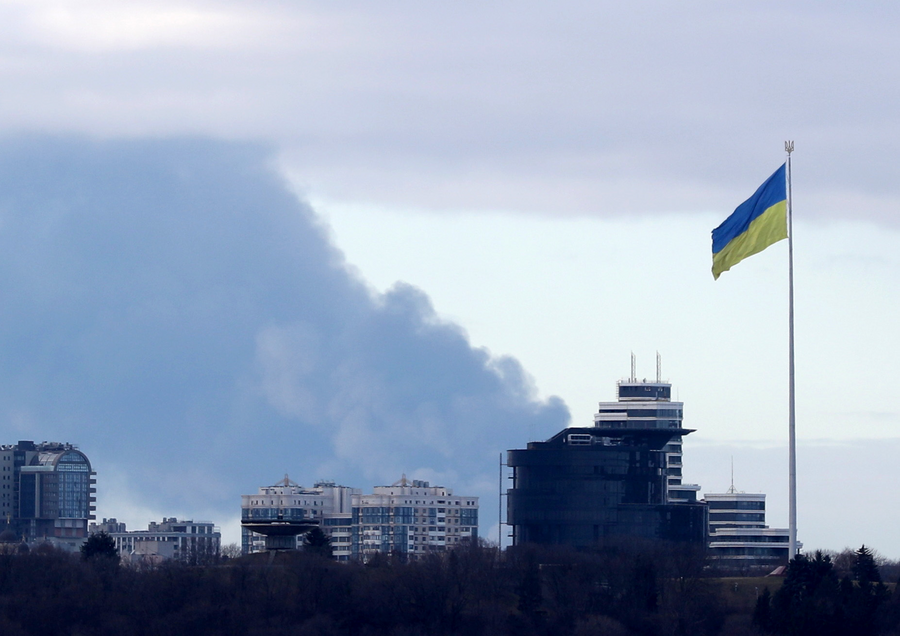
KYIV - The Ukrainian delegation is seeking a ceasefire and a troop withdrawal during the peace talks with Russia, Ukrainian Presidential Advisor Mykhailo Podolyak, also a member of the delegation, said Monday.
"Our positions remain unchanged: peace, immediate ceasefire, withdrawal of all Russian troops," Podolyak said in a video statement on Twitter.
Ukraine will be ready to talk about any neighborly relations and political settlements with Russia only after the implementation of these positions, Podolyak said.
The fourth round of negotiations between Ukrainian and Russian delegations was scheduled for Monday via video link.
The second batch of Chinese humanitarian aid to Ukraine arrived in the country on Sunday evening local time, China Central Television reported.
The consignment, including food, sleeping bags and damp-proof mats, landed in Chop, a city in western Ukraine, near the borders of Slovakia and Hungary.
Local Red Cross workers placed the packages in storage.
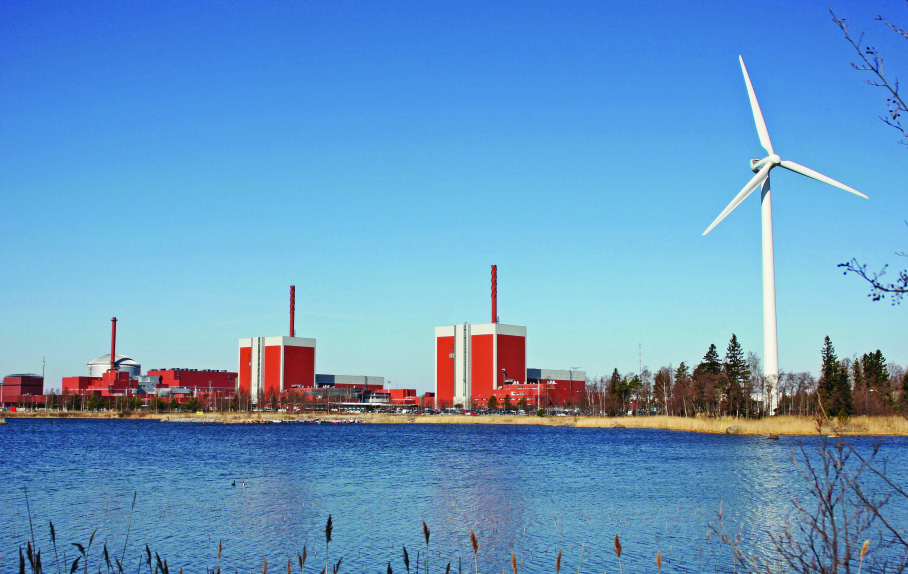
Against a backdrop of soaring fuel prices worldwide and growing concern about the extent and impact of the conflict in Ukraine, Europe's first new nuclear power plant in 15 years was officially opened in Finland on the weekend.
The facility, called Olkiluoto 3, has begun test production for the country's national grid, and should be up to full capacity by the end of July, when it will be on course to meet 14 percent of the country's demand for electricity, allowing it to ease off imports from Norway, Sweden, and Russia.
It is located on Finland's west coast and is the country's first new nuclear facility in more than four decades.
"OL3 significantly improves Finland's electricity self-sufficiency and helps in achieving carbon neutrality goals," said the operating company Teollisuuden Voima, also known as TVO.
The reactor, built by the Frenchled Areva-Siemens consortium, was originally supposed to open in 2009, but technical problems developed into legal disputes and the project was halted.
It was Europe's first nuclear power station since the 1986 Chernobyl disaster, with a combination of French and German technical expertise offering higher safety standards and increased production power, before disputes about technical issues, which Finland's nuclear regulator put down to poor management and workmanship, put the project on hold.
According to the 2019 World Nuclear Industry Report, its initial estimate cost of 3 billion euros ($3.27 billion) ended up being closer to 11 billion euros.
The compensation dispute between TVO and Areva was settled in March 2018, and now the plant is ready to become productive.
"When Olkiluoto 3 reaches full output, around 90 percent of Finland's electricity generation will come from clean, low-carbon electricity sources, with nuclear generation supplying around half of that," said Sama Bilbao y Leon, director-general of the World Nuclear Association.
"We congratulate the staff of TVO, the Finnish regulator STUK and all the companies involved for this great achievement."
The Ukraine conflict has made many Europeans see it as a relief to lessen Europe-wide dependence on fuel imports from Russia amid the uncertainty and economic consequences.
Currently, around 40 percent of Europe's gas and more than one quarter of its crude oil comes from Russia, and steps have already been taken to reduce its importance, with Germany, which gets around half its coal and oil from Russia, saying it wants to end both by the end of the year.
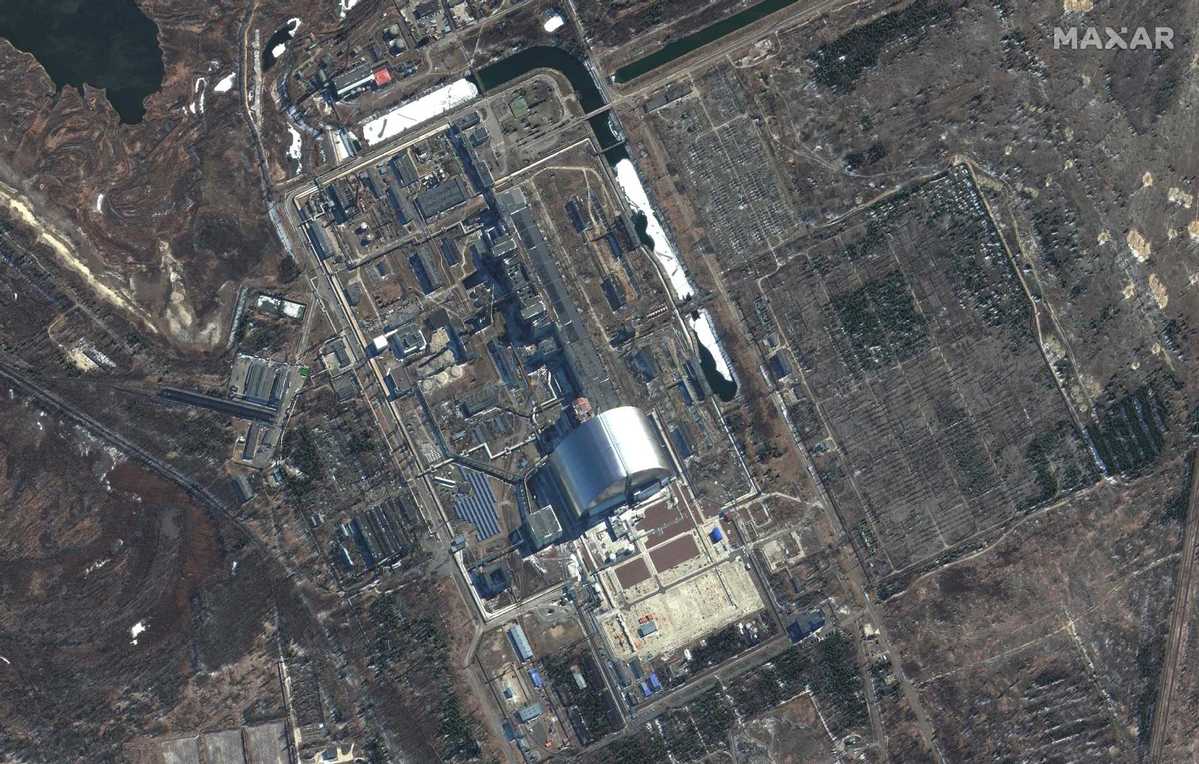
VIENNA - External electricity supplies have been restored at Ukraine's Chernobyl nuclear power plant, four days after its disconnection from the power grid, the International Atomic Energy Agency (IAEA) said Sunday.
Ukraine's regulatory authorities told the IAEA that Ukrainian specialist teams repaired one of the two damaged power lines at Chernobyl on Sunday, enabling all required off-site power to be delivered to the plant, the United Nations nuclear watchdog said in a daily statement.
The plant will be connected to the Ukrainian electricity grid on Monday morning, according to Ukraine's regulator.
The Chernobyl plant was disconnected from the power grid on Wednesday and has been operating on backup diesel generators. The plant is currently controlled by Russian armed forces.
"This is a positive development as the Chernobyl nuclear power plant has had to rely on emergency diesel generators for several days now," the IAEA Director-General Rafael Grossi said. "However, I remain gravely concerned about safety and security at Chernobyl and Ukraine's other nuclear facilities."
The Chernobyl nuclear plant, some 110 kms north of Kiev, witnessed one of the worst nuclear accidents in human history on April 26, 1986.
On Feb. 24, advisor to the Head of the President's Office of Ukraine Mykhailo Podoliak said Russian forces have seized the Chernobyl nuclear power plant.
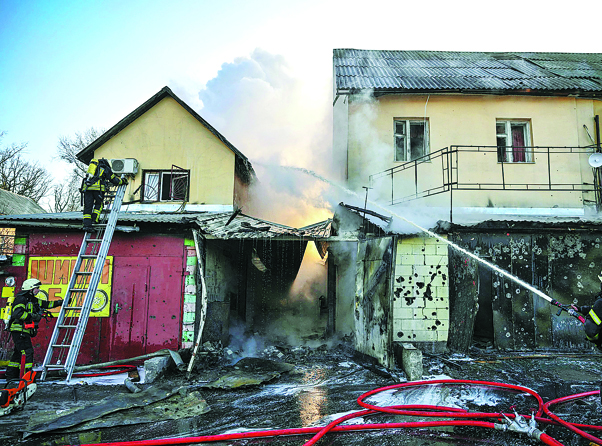
Ukraine's neighbors reported a dip in the numbers of new refugees on Saturday as governments struggled to find shelter for those who have fled since Russia's military operation began two weeks ago.
Germany will take in 2,500 refugees who have fled to Moldova from Ukraine, Foreign Minister Annalena Baerbock said on Saturday after meeting her Moldovan counterpart in Chisinau, the capital.
Britain will pay people to open their homes to Ukrainians. The new program, called Homes for Ukraine, will let refugees from the war travel to Britain even if they do not have family ties, the government said on Sunday.
A senior Russian defense ministry official said on Saturday that the humanitarian situation in Ukraine continued to decline rapidly, and he blamed the actions of Ukrainian fighters, the RIA news agency reported.
"The humanitarian situation in Ukraine, unfortunately, continues to rapidly worsen, and in some cities has reached catastrophic proportions," RIA quoted Mikhail Mizintsev, head of the Russian National Defense Control Centre, as saying.
Refugees have aimed for cities with established Ukrainian communities and better chances of finding work. The refugee inflows coincided with another day of shelling. Russian forces launched a missile attack on a large Ukrainian military facility near the Polish border on Sunday, as Kyiv said it was prepared for a "relentless defense" of the capital.
The Russian military launched an airstrike on the International Center for Peacekeeping and Security in Yavoriv, the Lviv regional military administration said.
Reuters quoted regional governor Maksym Kozytskyy as saying that Russian planes fired around 30 rockets, adding that some were intercepted before they hit. At least 35 people were killed and 134 wounded, he said.
The Kremlin did not immediately reply to a request for comment on the reported strike.
The 360-square-km facility less than 25 kilometers from the Polish border is one of Ukraine's biggest such centers and the largest in the western part of the country. Ukraine holds most of its drills with NATO countries there.
US President Joe Biden authorized $200 million in additional military equipment for Ukraine on Saturday. Russia said its troops could target supplies of Western weapons in Ukraine and that the pouring in of weapons would turn convoys transporting foreign weapons into Ukraine "into legitimate targets".
On the diplomatic front, Ukraine is working with Israel and Turkey as mediators to finalize a location and framework for peace negotiations with Russia, Ukrainian presidential adviser and negotiator Mykhailo Podolyak said on Sunday.
Agencies contributed to this story.
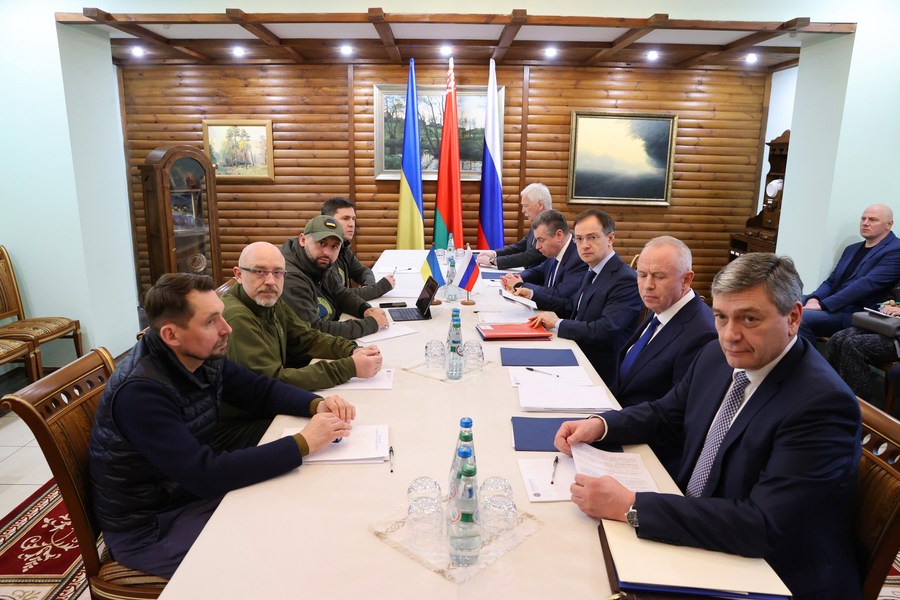
MOSCOW/KYIV - Russian and Ukrainian delegations will resume talks on Monday via video link, Kremlin spokesman Dmitry Peskov said on Sunday.
"Negotiations go non-stop in the format of video conferences. Working groups are constantly functioning. A large number of issues require constant attention. On Monday, March 14, a negotiating session will be held to sum up the preliminary results," Mykhailo Podoliak, advisor to the Head of the President's Office of Ukraine, tweeted on Sunday night.
Ukrainian and Russian delegations have held three rounds of peace talks in-person in Belarus since Feb. 28, though the negotiations ended without a significant breakthrough.
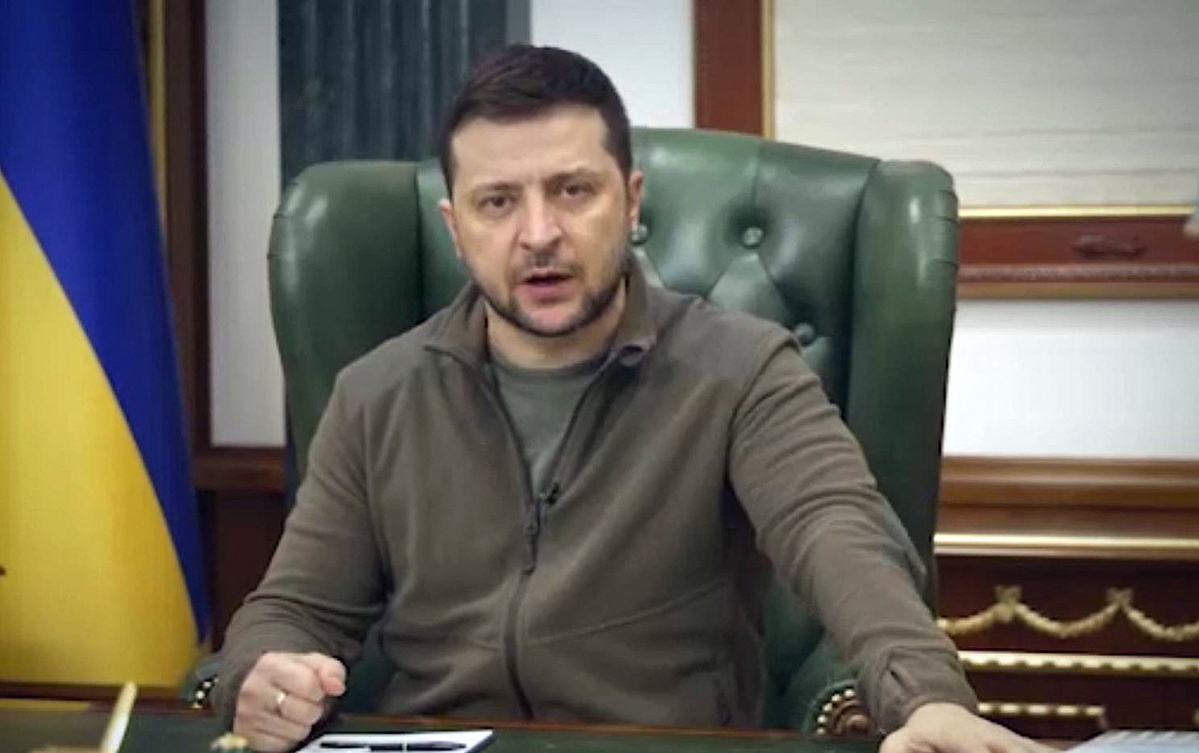
Exact date for ending Russian energy dependence not agreed within bloc
European Union leaders have failed to agree on a date to end energy dependence on Russia and on granting Ukraine fast-track membership, and French and German leaders are continuing to seek diplomatic resolutions to the conflict.
Leaders of 27 EU member states meeting for an informal summit in Versailles, near Paris, on Thursday and Friday "acknowledged the European aspirations" of Ukraine and vowed to strengthen their ties with Kyiv, but ruled out quick accession to the bloc sought by Ukrainian President Volodymyr Zelensky, who signed a formal application on Feb 28.
"Today we have opened the pathway toward us for Ukraine," European Commission President Ursula von der Leyen said after the meeting. "They are part of the European family."
However, France's President Emmanuel Macron, host of the summit, made it clear that there will be no fast-track accession for Ukraine.
"The answer is no," he said after the summit.
Other major European leaders echoed the view, with Dutch Prime Minister Mark Rutte saying earlier that there was "no such thing as a fast-tracking of accession-that doesn't exist" and German Chancellor Olaf Scholz emphasizing that "it's very important that we continue to pursue the things we have decided in the past", pointing to the association agreement between the EU and Ukraine in 2017 as a way to strengthen ties.
Failing to agree on a date to cut energy dependence on Russia, the EU leaders promised only to "phase out our dependency on Russian gas, oil and coal imports as soon as possible".
The United States has announced a ban on Russian energy, but the EU is the largest buyer of Russian oil and gas, with Germany being the largest importer of Russian energy in the EU.
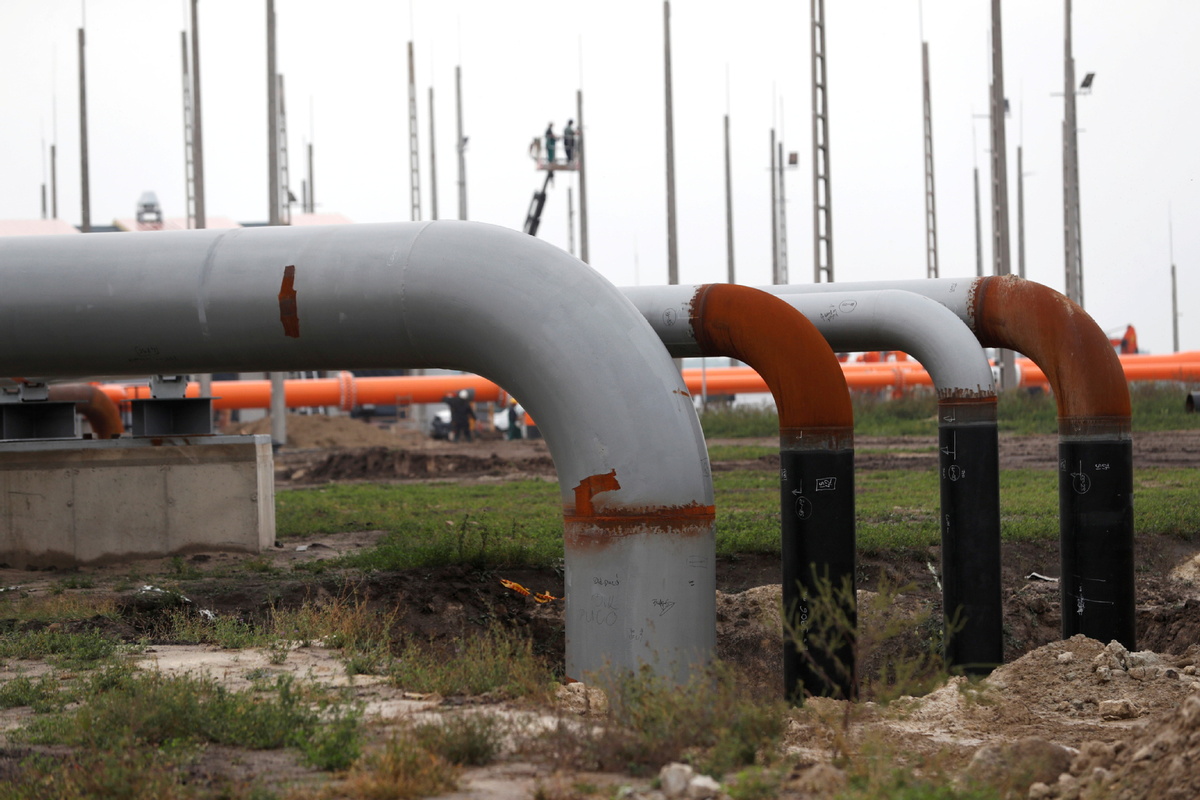
Irreplaceable role
Scholz indicated days ago that "at the moment, Europe's supply of energy for heat generation, mobility, power supply and industry cannot be secured in any other way".
Hungary's Prime Minister Viktor Orban said on Friday that "there will be no sanctions covering oil and gas, which means that Hungary's energy supply is guaranteed for the next period".
While von der Leyen had proposed 2027 as a firm end date, EU leaders at the summit did not commit to an exact date, and only asked the European Commission to come up with a plan in May.
Zelensky on Friday expressed his disappointment with the EU, saying it should "do more" for Ukraine.
Von der Leyen said on Friday that from the following day the EU would start imposing sanctions on Russia, including banning the exports of any EU luxury goods to it and banning imports of key goods in the iron and steel sector from it.
On Saturday, Macron and Scholz held a joint phone call with Russia's President Vladimir Putin.
Ding Chun, director of the Center for European Studies at Fudan University in Shanghai, said France and Germany have not stopped their mediation.
"Germany and France are clear that they cannot totally follow the actions taken by the US and the United Kingdom," Ding said, adding that both the US and the UK are not adjacent to Ukraine.
Scholz and Macron know well that Russia is not going to move anywhere, and totally cornering Putin without offering an off-ramp is bad for them and Europe, Ding said.
"German and French leaders want to resolve the conflict as soon as possible because the longer it lasts, the more costly it is for them."
He described Scholz and Macron as rational leaders despite some public pressure for more radical actions.
Lai Suetyi, associate professor in the Center for European Studies at the Guangdong University of Foreign Studies, said: "It's nice to see more EU member states being pragmatic regarding Ukraine's accession to the EU. The painful process of integrating the new members from the 2004 big-bang enlargement has been felt strongly in recent years."
Fast-track admission would be "romantic" but "very painful" for the EU, she said.
"The Versailles summit rejected such romantic expectations of the EU and showed that the majority of EU leaders choose to be pragmatic."
On the inconclusive results of cutting off Russian energy, Lai said the summit showed that "many of the EU member states are cautious on the price they would bear in aiding Ukraine".
The second batch of Chinese humanitarian aid to Ukraine has left Beijing on Saturday, including food, sleeping bags and damp-proof mats.
The packs, sent by the Red Cross Society of China, are expected to arrive at Budapest Ferenc Liszt International Airport in Hungary and move from there to Ukraine.
The consignment will be given to Ukraine's Red Cross Society to help local people.
It is the second such consignment sent from Beijing to Ukraine by the society.
The first batch of Chinese humanitarian aid arrived in Ukraine on Friday. The consignment, which includes 1,000 family kits containing daily supplies worth 5 million yuan ($800,000), crossed the Ukraine-Romania border on Friday, having been delivered by plane to Bucharest Airport.
The packs contain blankets, towels, cutlery, damp-proof mats, buckets and torches.
Ukraine's Red Cross Society will receive the consignment when the truck convoy containing the aid arrives in the western Ukrainian city of Chernivtsi.
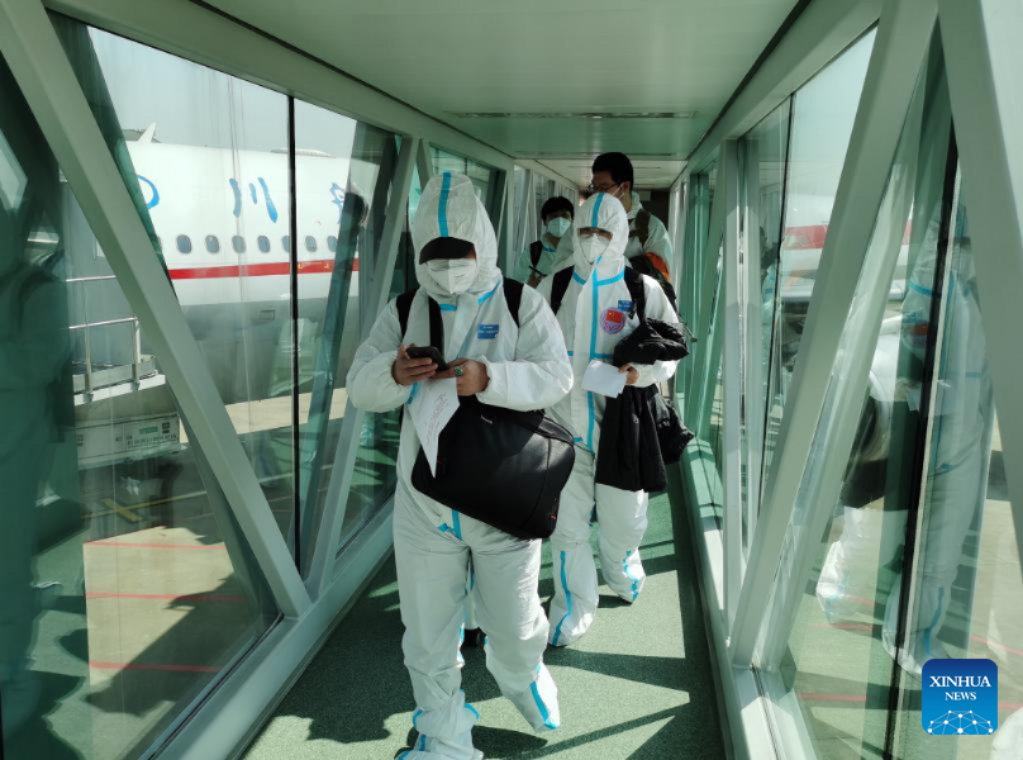
BEIJING - At 9:16 am on Sunday, a temporary flight carrying Chinese citizens evacuated from Ukraine arrived in Jinan, East China's Shandong province.
Prior to Sunday, eleven temporary flights taking Chinese nationals back from Ukraine have returned to China safely.
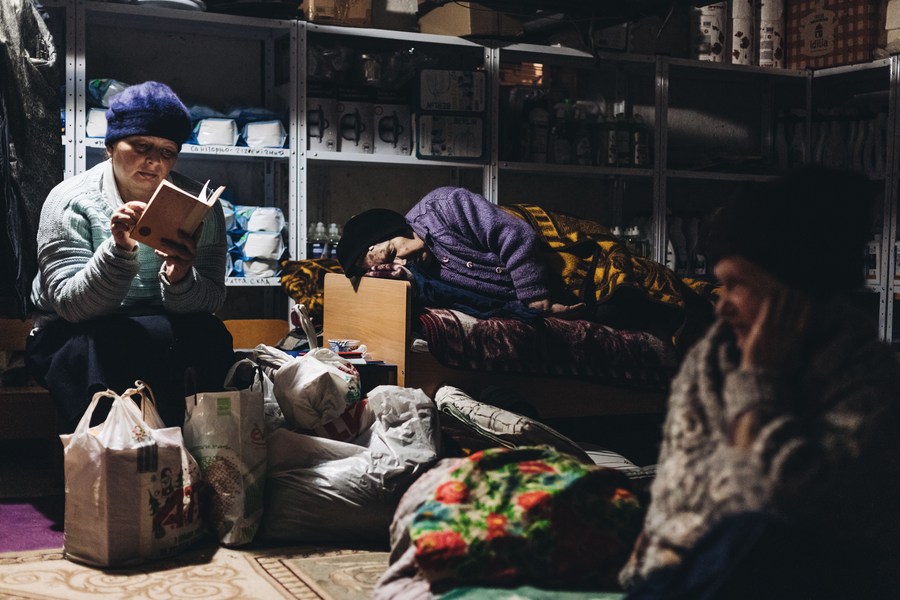
MOSCOW - Russian President Vladimir Putin had a telephone conversation with French President Emmanuel Macron and German Chancellor Olaf Scholz on Saturday, and urged them to influence the Kiev authorities to stop "criminal acts" of Ukrainian "nationalist battalions," according to the Kremlin.
Macron and Scholz urged an immediate ceasefire and a diplomatic solution to the conflict in Ukraine, the German government said in a statement, noting the 75-minute talk as part of the ongoing international efforts to end the conflict.
Putin gave a "detailed account of the series of talks held via videoconference by Russian and Ukrainian representatives over the past days," and the three leaders reviewed issues pertaining to the agreements being worked out concerning the implementation of the earlier Russian demands, the Kremlin said in a statement.
Putin informed Macron and Scholz of "the real situation on the ground" in response to the issues raised by them "regarding the humanitarian situation on the territory of the military operation to protect Donbass," the Kremlin said.
Putin cited "multiple facts of gross violations of the international humanitarian law by the Ukrainian army and police: extrajudicial killings of dissenters, hostage taking and the use of civilians as human shields, deployment of heavy weaponry in residential areas, in proximity to hospitals, schools, kindergartens, and so on," according to the Kremlin statement.
"Nationalist battalions regularly sabotage rescue operations and threaten civilians when they attempt to evacuate," the Kremlin said, adding that Putin urged Macron and Scholz to influence the Kiev authorities to stop such "criminal acts."
The three leaders agreed to continue contacts on Ukrainian issues, the Kremlin said.
Scholz spoke to Ukrainian President Volodymyr Zelensky on Saturday morning, and learned about Zelensky's assessment of the current situation. The two agreed to keep in touch, according to the German statement.
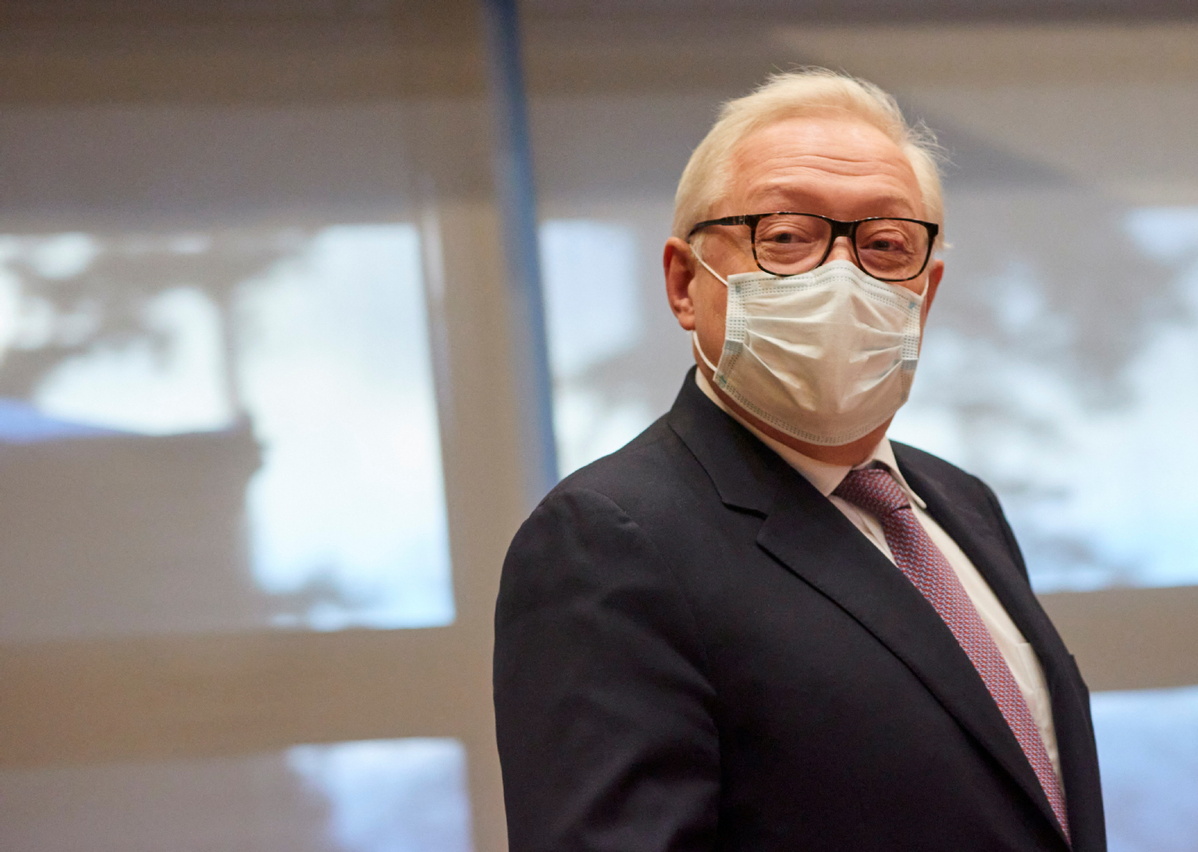
MOSCOW -- Russia will publish individual sanctions against the West in the near future, Deputy Foreign Minister Sergei Ryabkov said on Saturday.
"The lists are ready," Ryabkov said on Russian broadcaster Channel One, adding that the sanctions will be made public soon.
According to Ryabkov, Moscow sees no indication that the United States was ready to continue dialogue on Ukraine.
The diplomat also warned Washington against transferring weapons to Ukraine, adding that these weapons will become legitimate targets for the Russian forces.
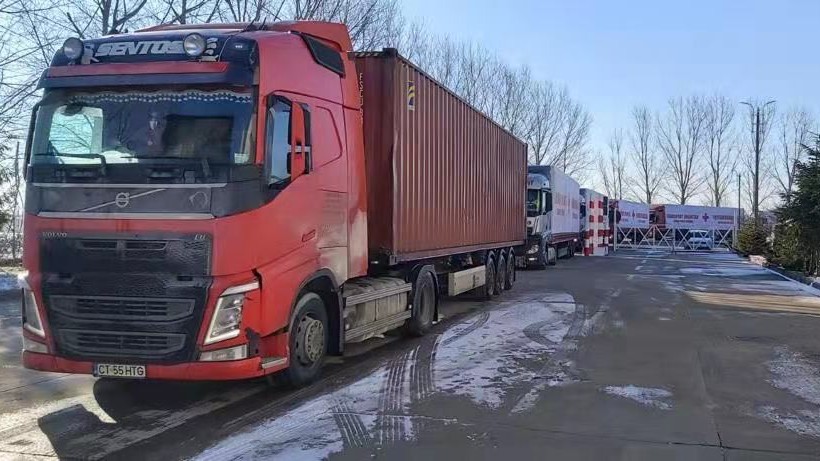
The first batch of Chinese humanitarian aid has reached Ukraine. The consignment, which includes 1,000 family kits containing daily supplies worth 5 million yuan ($800,000), crossed the Ukraine-Romania border on Friday, having being delivered by plane to Bucharest Airport.
The packs contain blankets, towels, cutlery, damp-proof mats, buckets and torches, and were sent from Beijing by the Red Cross Society of China.
Ukraine's Red Cross Society will receive the consignment when the truck convoy containing the aid arrives in the western Ukrainian city of Chernivtsi.
A second batch of materials will leave the Chinese capital on Sunday.
KYIV -- Ukraine established 12 humanitarian corridors in four regions on Friday to allow civilians to leave the conflict-torn areas, the Ukrainian government-run Ukrinform news agency reported, citing Ukrainian Deputy Prime Minister Iryna Vereshchuk.
The humanitarian corridors were set up to evacuate people from some cities and towns in eastern Donetsk and Kharkiv, southern Zaporizhzhya and north-central Kyiv, Vereshchuk said.
She added that the Ukrainian authorities also have organized supplies of food and water to civilians in several other regions across the country that were affected by the conflict with Russia.
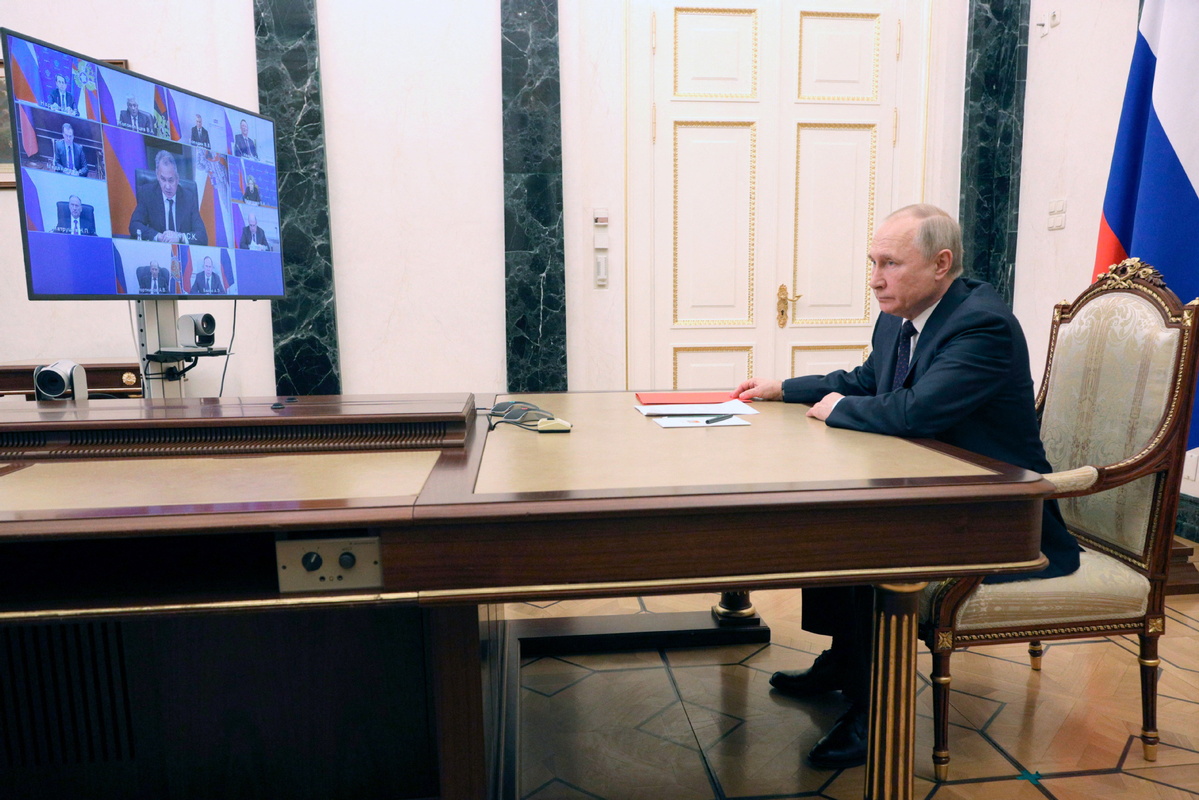
MOSCOW -- Russian President Vladimir Putin said Friday that he supported the idea of allowing volunteers from abroad to provide military assistance to Donbass.
Western countries and Ukraine do not hide that they are gathering mercenaries and sending them to Ukraine, Putin said at a meeting with permanent members of Russia's Security Council.
Russian Defense Minister Sergei Shoigu told Putin that he had received "a huge number of applications from various kinds of volunteers from different countries" who would like to come to Lugansk and Donetsk in order to "participate in what they consider a liberation movement."
"The largest number is from the Middle Eastern countries. There are already more than 16,000 applications," Shoigu reported.
"If you see that there are people who want on a voluntary basis, especially not for money, to come and help people living in Donbass, you need to meet them halfway and help them move to the war zone," Putin said after listening to his report.
Putin also backed Shoigu's initiative to transfer Western-made weapons captured by the Russian military in Ukraine to the forces of Donbass.
ANTALYA, Turkey -- The chief of the International Atomic Energy Agency (IAEA) on Thursday held meetings with Ukrainian and Russian foreign ministers respectively on nuclear security in a town in Turkey's southern province of Antalya, Turkish official sources said Friday.
At the invitation of Turkish Foreign Minister Mevlut Cavusoglu, IAEA Director General Rafael Mariano Grossi arrived in Belek, a town about 30 km from Antalya's provincial capital, to attend the Antalya Diplomatic Forum that kicked off on Friday, the sources said.
On the sidelines of the international forum, Grossi held separate meetings with Ukrainian Foreign Minister Dmytro Kuleba and Russian Foreign Minister Sergey Lavrov, a source of the Turkish Foreign Ministry told Xinhua.
Following the talks, Grossi wrote in two successive tweets that his meeting with Kuleba was "important and forward-looking," and that with Lavrov was "constructive and important."
"We are making progress on the safety and security of nuclear facilities in Ukraine," he wrote.
Both Kuleba and the Permanent Mission of Russia to the International Organizations in Vienna confirmed via Twitter that safety and security of nuclear facilities in Ukraine were discussed in the meetings.
Lavrov and Kuleba held a meeting on Thursday in Belek in the presence of Cavusoglu, the first high-level meeting between Moscow and Kyiv since Russia's special military operation in Ukraine started on Feb 24.
During the meeting, the two sides failed to make progress on a ceasefire but agreed to continue negotiations over the conflict.

MOSCOW - Russia on Thursday accused the United States of funding research into the development of biological weapons in Ukraine.
Russian Defence Ministry spokesman Igor Konashenkov said in a televised briefing that "the purpose of this -- and other Pentagon-funded biological research in Ukraine -- was to establish a mechanism for the stealthy spread of deadly pathogens."
Konashenkov claimed the ministry had obtained documents detailing US military-biological activities in Ukraine, including on the transfer of Ukrainians' biomaterial abroad.
He said Washington "planned to carry out research on bird, bat and reptile pathogens", as well as on African swine fever and anthrax.
"Bio-laboratories set up and funded in Ukraine have been experimenting with bat coronavirus samples," Konashenkov added.
Russian Foreign Minister Sergei Lavrov in a press conference later Thursday following talks with his Ukrainian counterpart Dmytro Kuleba repeated the claim, saying Washington had funded development of biological weapons in Ukraine.
"The Americans carried out this work in complete secrecy. Just like how they work in other former Soviet states, creating their military-biological labs right along Russia's borders," he said.
Both Washington and Kyiv have denied the existence of laboratories intended to produce biological weapons in the country.
AFP
Premier Li Keqiang said on Friday that the situation in Ukraine is indeed?disconcerting and the top priority now is to prevent tensions from further escalating or even getting out of control.?
He made the remark during a news conference after the fifth session of the 13th National People's Congress concluded in Beijing.
"We believe utmost efforts should be made to support Russia and Ukraine in carrying forward negotiations of ceasefire by overcoming difficulties in order to achieve peace," he said, adding that China supports and encourages all efforts in this regard.
Li said that China calls for restraint to prevent the occurrence of a massive humanitarian crisis. China has put forward an initiative about the humanitarian situation in Ukraine and will continue to provide humanitarian assistance for the Ukrainian side, he said.
The premier said that while the world economy is already struggling amid the impact of the COVID-19 pandemic, relevant sanctions will further hurt the world economic recovery and are not in any country's interest.
The premier stressed that China always follows the independent foreign policy of peace.
Regarding the situation in Ukraine, China maintains that the sovereignty and territorial integrity of all countries should be respected, the purposes and principles of the United Nations Charter should be observed, and the security concerns of all countries should also be taken seriously, he said.
"On this basis, China makes its own assessment and will work with the international community to play a positive role for an early return of peace," he said.
